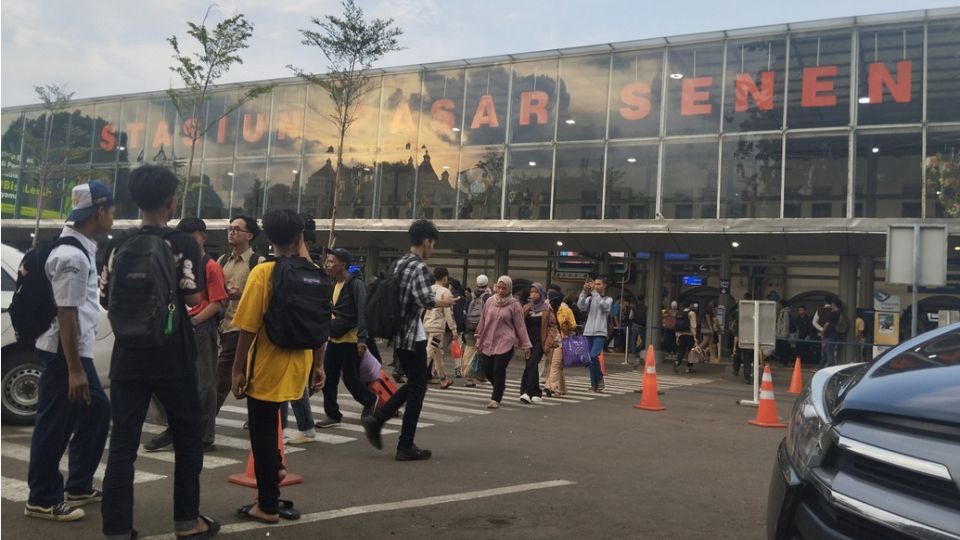May 14, 2024
JAKARTA – The practice leaving one’s home for a faraway place is known in Indonesian as merantau (migration), and those who do so are known as perantau (migrants), such as Hopi Islami, a 24-year-old native of Lombok, West Nusa Tenggara, who graduated from a private university in Yogyakarta in 2023.
She plans to seek a job as a copywriter in Jakarta this month.
“I want to start a career in Jakarta considering there are many companies in the creative industry sector and job vacancies. I think Jakarta is the right place, even though it’s not that easy to get a job there,” Hopi told The Jakarta Post on April 25.
Even though the government was planning to make Nusantara in East Kalimantan the new national capital, Hopi said, as long as Jakarta still officially held the title, people would go there.
President Joko “Jokowi” Widodo has signed Law No. 2/2024 on the special region of Jakarta, which outlines the process for the transfer of capital city status from Jakarta to Nusantara.
However, Article 63 of the law signed on April 25 stipulates that the capital city transfer requires a presidential regulation to take effect.
Another newcomer, Sarnah, 39, is also seeking a better life in Jakarta after Idul Fitri, after leaving her job as a farmer in Lampung.
Sarnah, a junior high school graduate, followed her sister-in-law, Salmiyati, 43, who opened a food stall in Palmerah, West Jakarta, at the end of 2022.
“My sister invited me to work in Jakarta, so I simply followed to help her run the food stall,” she said, adding that she hoped to work in Jakarta for a long time.
Many people living outside the capital believe they have a better chance of making a good living in Jakarta than anywhere else.
Sudirman, 54, shared this view.
Speaking to the Post on April 18 at Pasar Senen Station in Central Jakarta after a five-hour train ride from Purwokerto, Central Java, Sudirman said he first came to Jakarta because the city offered good opportunities for a skilled driver.
Sudirman, a high school graduate, has been working as a driver for seven years in the city.
He currently works as a private driver for a corporate executive living in Pondok Indah, South Jakarta.
However, unlike Salmiyati, Sudirman did not bring any relatives from his hometown to the Big Durian.
Decreasing arrivals
People who have found work in Jakarta often bring additional family members or friends when returning to the city after their annual Idul Fitri mudik (exodus) trip.
The Jakarta administration has repeatedly discouraged returning residents from doing so, highlighting the high unemployment rate and overpopulation in the city.
Jakarta Civil Registration Agency head Budi Awaluddin told the Post that an estimated 10,000 to 15,000 newcomers would move to Jakarta after Idul Fitri.
The figure is down from 2023, when the agency recorded 25,918 new arrivals.
In 2020, the first year of the pandemic, more than 113,814 people moved to Jakarta. The following year, the number increased 18.5 percent to 139,700. In 2022, when the pandemic showed signs of easing, the figure rose again by 7.9 percent to 151,755 arrivals.
“Year after year, to this day, Jakarta has been the center of urbanization, with people searching for better lives. But not everyone who comes to Jakarta can be as lucky as [in the success stories] they hear,” Budi said.
He advised people who wanted to come to Jakarta to prepare themselves with skills, a job and a place to live, as the agency’s data showed that in 2023, 84.06 percent of new arrivals after Idul Fitri had a high school education or lower.
About 62.32 percent of the total new arrivals were in the low-income group.
“In reality, many people from outside Jakarta become unemployed when they arrive here. Many of them even live in slums with inadequate living conditions,” he said.
Budi said at least 11.3 million people lived in the 661.5-square-kilometer city, according to recent agency data, which meant an average of about 17,000 people lived in every square km.
Other cities gaining ground
Institute for Development of Economics and Finance (Indef) executive director Tauhid Ahmad attributed this year’s decline in Jakarta’s estimated new arrivals to improved economic growth in other cities, such as Surabaya, East Java; Medan, North Sumatra; and Karawang and Bekasi in West Java.
“With the project of the Nusantara Capital City (IKN) Authority, the number of newcomers to Jakarta will potentially decrease further because many newcomers fill job vacancies in the service sector and civil service,” he said on Thursday.
He went on to say that the high unemployment rate in Jakarta, which exceeded the nationwide figure, had added to the decline in interest in seeking opportunities in the capital.
According to Statistics Indonesia (BPS) data, the capital had a 6.53 percent unemployment rate in 2023, with some 354,000 unemployed, down 0.65 percent from the year before.
The data also shows that the nationwide unemployment rate in 2023 fell 0.54 percent from the previous year to 5.32 percent, making for 7.86 million unemployed people nationwide.
“As economic growth continues to expand, Jakarta is no longer the main destination to seek a better life.”


